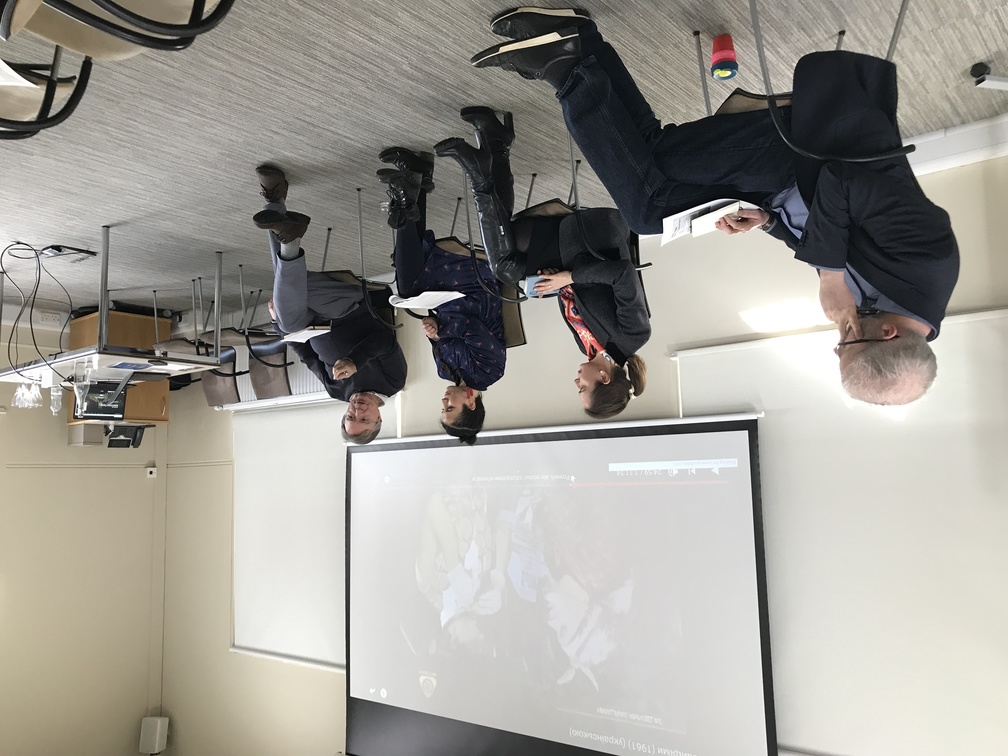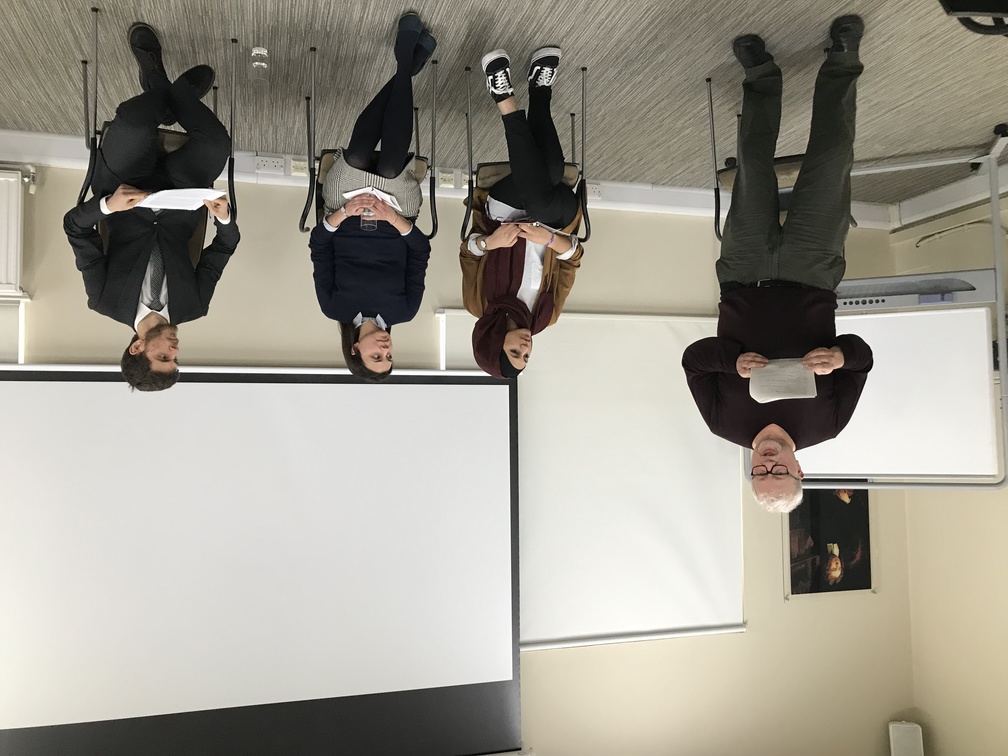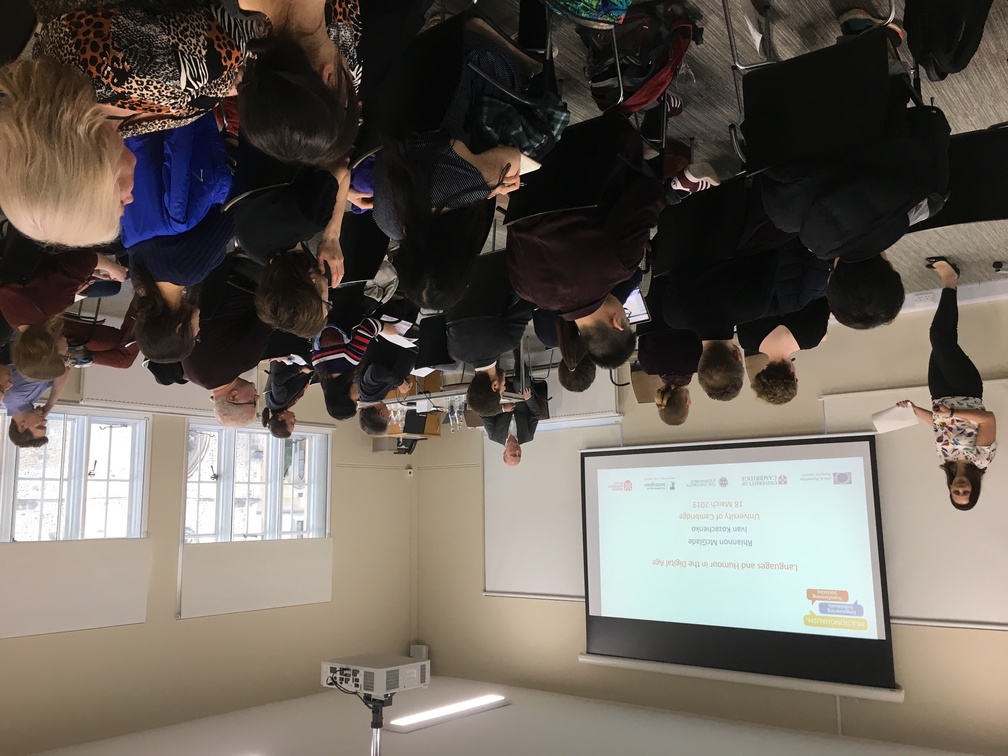The strand 1-led conference ‘Languages and Others: Diversity and Humour in Catalonia and Ukraine’ took place on 18 March 2019 at the University of Cambridge. The aim of this conference was to bring together practitioners and scholars to address questions of diversity, linguistic unity and humour in Catalonia and Ukraine. It consisted of two round tables and concluded with a public lecture. The Strand’s Co-lead Dr Rory Finnin stressed in his introduction to the event that the conference’s ambition was to set Ukraine and Catalonia in dialogue, using culture as a tool for such dialogue. The first roundtable with Antonio Monegal, Svitlana Pyrkalo, and Marina Pallares-Elias addressed several issues. First, Professor Monegal stressed that language is always political and warned against dichotomic judgements concerning linguistic divides. He also argued that the dialogical setting ‘Us and you’ is much more constructive than the divisive ‘Us and them’. Svitlana Pyrkalo addressed humour, inequalities and gender roles in Ukraine pointing out that a great deal could be achieved in Ukraine in terms of greater awareness of inequalities and divisions.

Finally, Marina Pallares-Elias discussed the use of theatre as a tool for social change, describing the way in which she has worked with multilingual actors and been able to experiment with both the spoken and physical languages of performance to explore the experiences of minority ethnic, sexual, and linguistic groups.
The second roundtable with Míriam Hatibi, Daria Mattingly, and Bohdan Tokarsky, was chaired by Professor Bradley Epps. Míriam raised questions of diasporic identities, languages, and activism in the Catalan setting. The subsequent talk by Daria injected an historical perspective in order to reflect on the relationship between cultural memory othering and language and class identity through the case of Holodomor – the artificial famine that took place in the Soviet Ukraine in 1932-33.

This was followed by the presentation by Bohdan Tokarskyi who provided numerous examples of how humour served the purpose of creating autonomous Ukrainian cultural spaces in the Russian Empire and how this cultural trend was also visible in the Soviet Union. Both roundtables sparked fruitful discussions on the two different, yet similar, cases.
This part of the conference was followed by the public lecture ‘Languages and Humour in the Digital Age’ by Rhiannon McGlade and Ivan Kozachenko. This lecture brought together theorisations on humour, languages, solidarity and the cultural outcomes of the Digital Revolution. Focussing on the cases of Catalonia and Ukraine, it explored how languages and humour are embedded in national belonging and mediated by the new means of communication.

Both the conference and the public lecture were well attended. One of the attendees at the lecture commented: ‘I found the presentation by Dr McGlade and Dr Kozachenko to be particularly fascinating. The content and examples were not only entertaining, they were thoughtfully selected for a public who may not be familiar with the cultural context of Ukraine and Catalonia’. Overall, the conference and the public lecture facilitated the sharing of in-depth insights by the conference participants and the MEITS Strand 1 team providing an important setting for dialogue between academic and non-academic communities.






